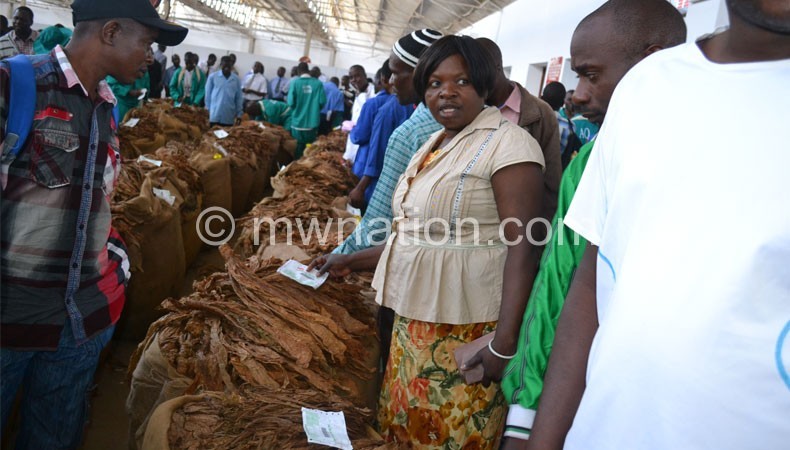Tama faults government forex ‘trick’
Tobacco Association of Malawi (Tama) has faulted government over its alleged manipulation of the foreign exchange regime towards devaluation of the local currency reportedly to enable tobacco farmers fetch higher prices for their crop in kwacha terms.
Tama chief executive officer Graham Kunimba was reacting to government’s action soon after Minister of Finance, Economic Planning and Development Goodall Gondwe disclosed earlier last week that government had recently induced the devaluation, partly by instructing commercial banks to hold on to foreign currency, so that tobacco farmers fetch more of the local currency.

University of Malawi Chancellor College economics professor Ben Kaluwa has also described the government action as ill-timed though well-intentioned while Ministry of Finance spokesperson Nations Msowoya defended the government’s move as well-intended.
Kunimba told Business News in Lilongwe on Friday that only a few farmers can now benefit from the government action as it is coming at a time when about 90 percent of the mainly flue-cured and burley tobacco in Malawi have already been sold at the auction floors.
Kunimba said: “Devaluing the kwacha now, when we have sold almost close to 90 percent of the crop, is very, very unfortunate for a tobacco farmer. Which tobacco farmers are going to benefit in this particular case?
“We have said it a number of times, that if government is to devalue the kwacha with the aim of benefitting the farmer, then this must be done from the onset of the tobacco selling season, which is around March-April.”
He stressed the need for government to come up with legislation to regulate and protect the key industry and bring sanity to its operations, including creating an agricultural bank that would be offering soft loans to farmers, thereby promoting the growing of tobacco and leguminous crops.
In his reaction, Kaluwa also lamented the fact that very few tobacco farmers would benefit from the government’s belated move, coming towards the end of the crop’s selling season.
“To me, this appears to be a good intervention not timed well. Why should the intervention come this late, when there was the opportunity to do it earlier in the tobacco selling season? This underlines my worry that there are far too many policies in Malawi which cannot get the desired results because of loose and inconsistent planning and implementation,” he stated.
But Msowoya defended the government’s move, saying the ministry had consulted, and sought advice from, key economic stakeholders. He argued that even if the devaluation could have occurred earlier in the year, some other quarters in society could still have cried foul.
Tobacco remains Malawi’s leading foreign exchange earner, raking in about 60 percent of foreign exchange proceeds.





